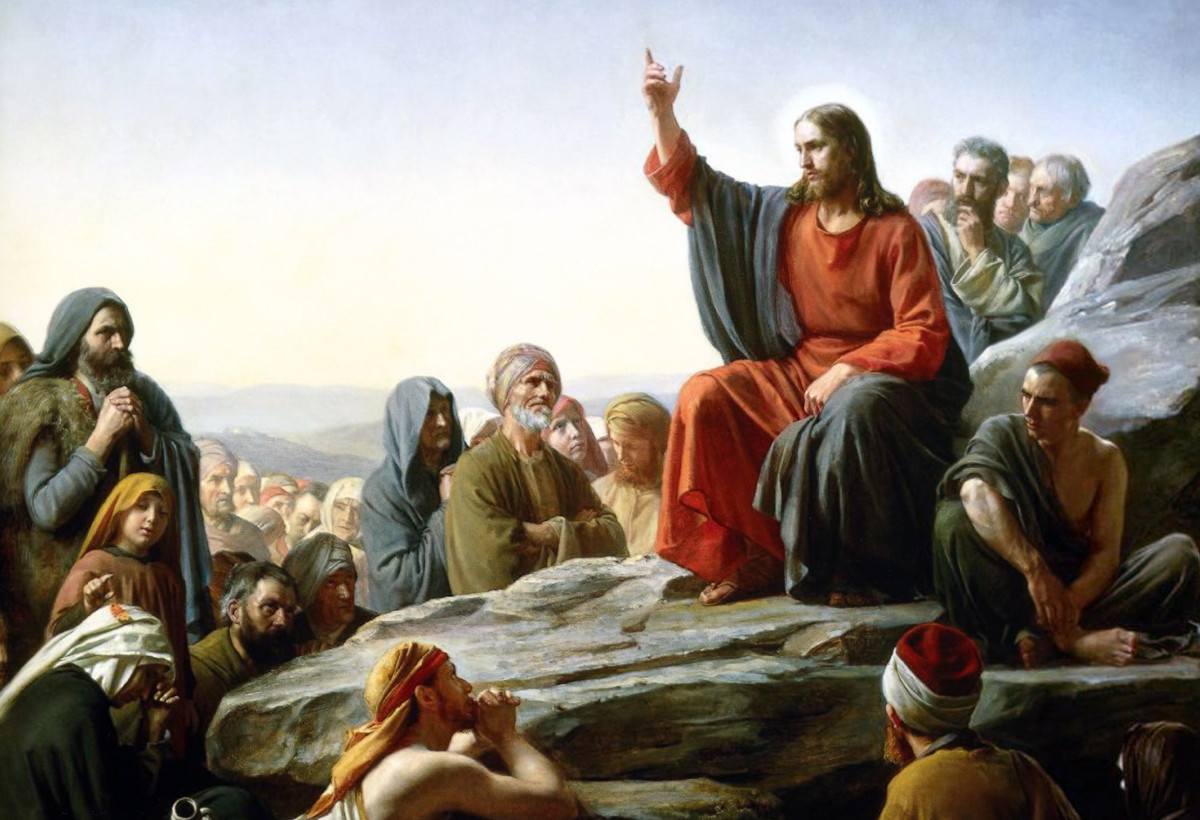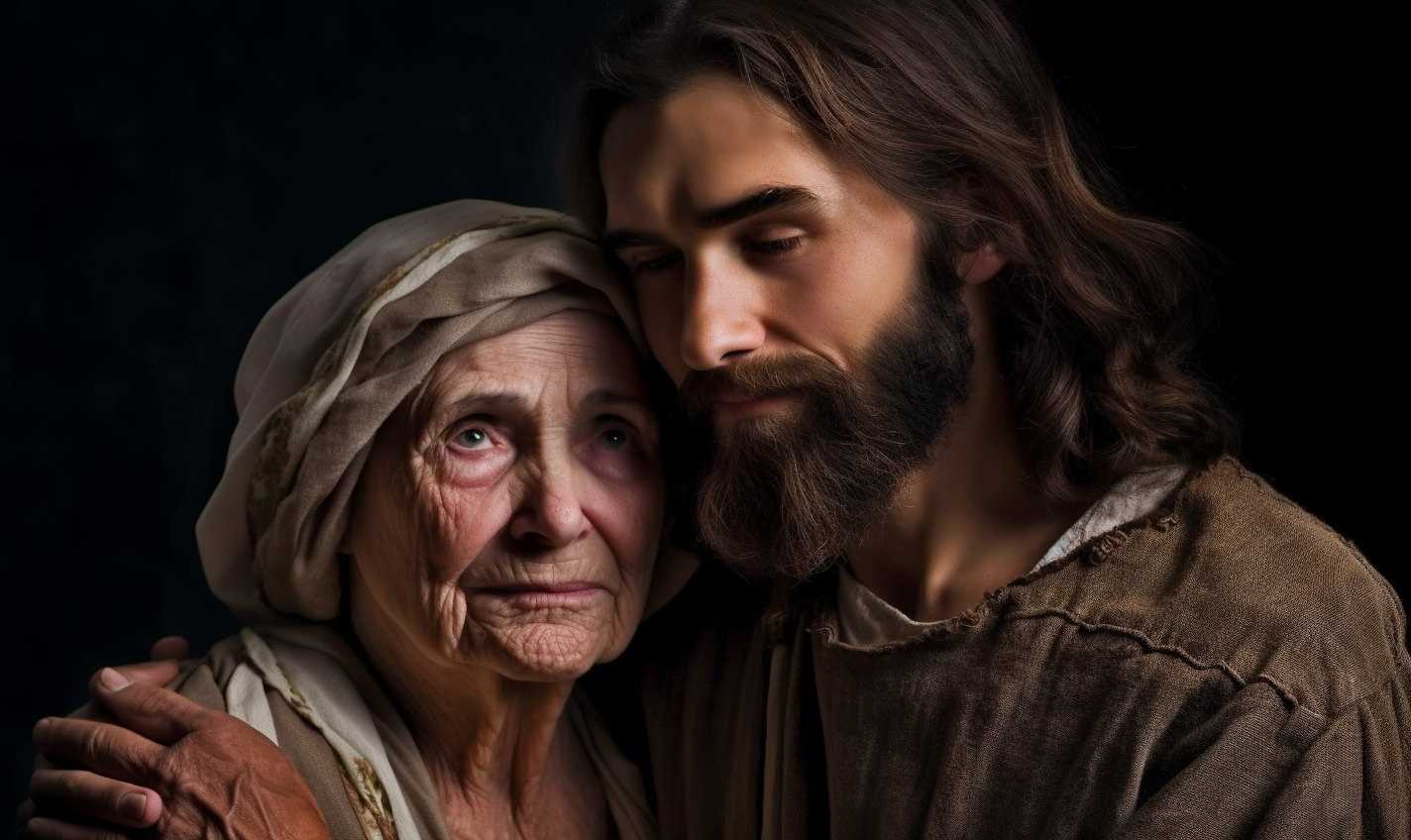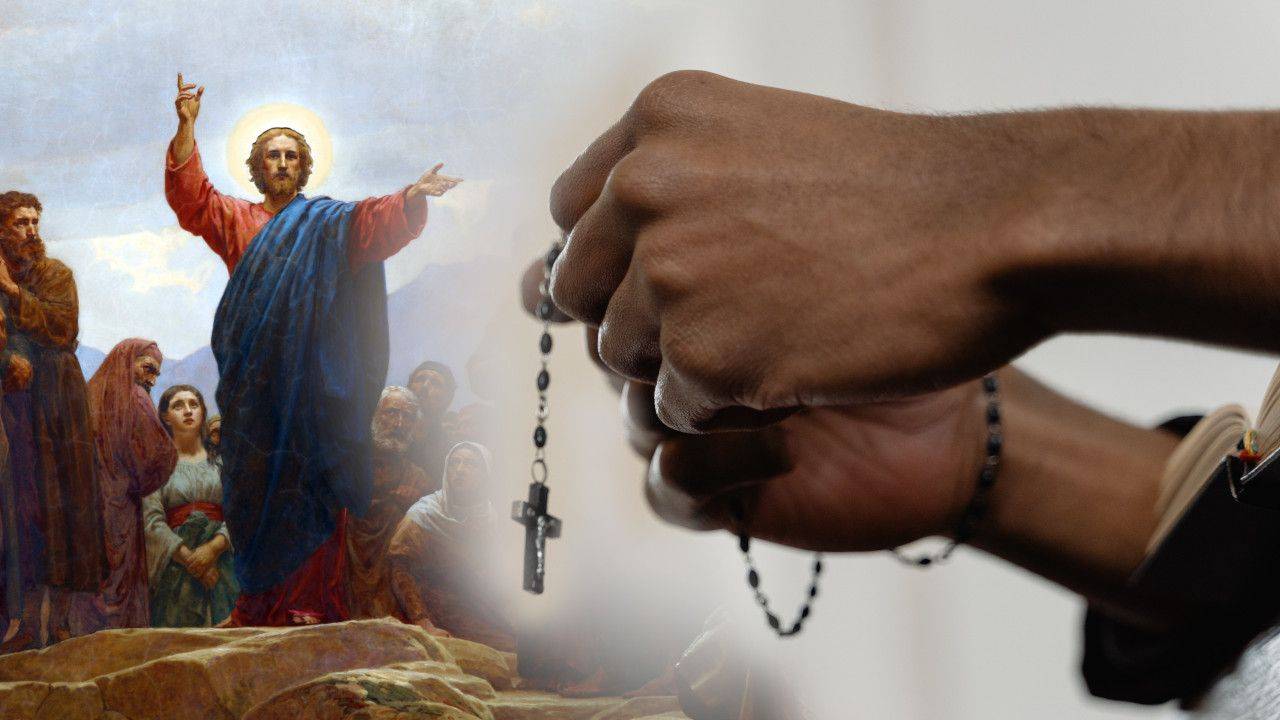Dear Souls and Hearts Members,
Our Lord commands us to love our God with our whole heart, with all of our being, with all of our parts. But many of us have parts that find vocal prayers to be monotonous, dry, frustrating, or even threatening. These parts can react negatively to the Rosary, attempting to distract us or undermine our efforts to pray. And to make matters worse, other parts of us can misunderstand these negative reactions and expressions of need as demonic temptations, setting up unnecessary conflicts and polarizations within us that distract us and discourage. And the end result can be to shorten or even abandon prayer in self-sabotage, which Satan encourages and enjoys.
Dr. Gerry and I hope that this series of reflections will not only enhance your Rosary meditations but also provide a new window into understanding and connecting with your parts in your inner world so that your innermost self can lead and guide all your parts into a deeper, more intimate and more personal relationship with God and the Blessed Virgin Mary.
The focus of this series is to see the Luminous Mysteries through a new lens, as a tableau of our inner world, discovering and uncovering any hindrances to our ability to love and to be loved, to carry out the two Great Commandments. We are holding you in our prayers, and ask your prayers for our Souls and Hearts outreach.
Proclamation of the Kingdom: Illuminating Parts through the Luminous Mysteries
By Gerry Crete, Ph.D.
The Third Luminous Mystery is the Proclamation of the Kingdom, rich with the core teachings of Jesus. St. Mark tells us that the Gospel is the good news about the Kingdom of God: “…the time is fulfilled, and the kingdom of God has come near; repent, and believe in the good news” (Mark 1: 15).
For the modern reader it might be difficult to understand the concept of “kingdom.” Inherent in the concept is that there is a ruler with many subjects. The king is responsible for providing leadership and a vision. He maintains tradition and provides security. He has an army to defend the country. He governs the country and makes sure that people are treated fairly. In many ways a kingdom is made up of parts: managers and protectors.
The king’s role is to make sure that the managers get along and are productive and prosperous. The protectors make sure that everyone is safe from internal and external threats. There might even be special operatives, like firefighters, who take on special missions during emergencies.
In any kingdom there are also likely to be people who are outcast, the marginalized and the wounded. A good king brings prosperity and good order. He also is concerned about those in his kingdom who are troubled, looking for ways to bring them education, good health, stability, and proper functioning.
In essence, a kingdom is a system of many parts. A good kingdom is healthy and prosperous, with the needs of all the subjects addressed. The fact that Jesus preaches the coming of the Kingdom of God means that there is going to be a new order, a new system, and this Kingdom will be different because it will be based on love, free from corruption.

Israel as the Exemplar
The nation of Israel is an example of a chosen people in connection with God. We see in Israel a group of parts: leaders, priests, prophets, scribes, and all the people. As long as Israel’s parts are in connection with God, they prosper and live joyfully. When they are disconnected from God, when they worship false gods and live sinful lives, they reject their identity as a “chosen people” and they lose his protection, his care, and they lose their deep intimacy with him. When they are in exile, in Egypt, Babylon, or Persia, they are disconnected from God and in need of redemption. They need an “exodus” to return to communion which is the safety of home with God their loving Father.
The Kingdom is Within
Jesus teaches, “‘The kingdom of God is not coming with things that can be observed; nor will they say, “Look, here it is!” or “There it is!” For, in fact, the kingdom of God is within you.’” (Luke 17:20-21). Here it is explicit that there is a “kingdom” or “internal system” led by God inside of each one of us. St. Paul describes it as “righteousness and peace and joy in the Holy Spirit.” (Romans 14:17).
Jesus himself describes the Kingdom with its parts in the Beatitudes (Matthew 5: 1-12), noting that the following will be blessed: the poor in spirit, those who mourn, the meek, those who hunger and thirst for righteousness, the merciful, the pure in heart, the peacemakers, and those who are persecuted for righteousness’ sake. He also describes what each part will receive: the kingdom of heaven, comfort, an inheritance, mercy, the bliss of seeing God, being called children of God, and other rewards. In this kingdom the king rewards the parts and gives to each part what it needs. These blessings include a sense of security, receiving comfort and care, an identity as a child of God and connection with God.

It is the same with our internal system made up of the inmost self and our various parts. There is a cooperation among the parts as they work together, despite their struggles, and despite their pain. In a harmonious system, each part in this kingdom is devoted to God, to his justice, and to a life of humility despite what the world throws at them.
Loving our Exiles
In the Beatitudes, Jesus actually names the various parts that have been hurt and wounded. He indicates that he wants to liberate them, free them, console them, and honor them! He calls them blessed and he makes promises to them. So here we have Jesus seeing, encouraging, comforting, and affirming all the wounded parts of the self-system. He explains that the new order in the Kingdom of God is one where all the parts return from their exile and are welcomed and treated with love and compassion.
In this new order, the proud and the mighty, those who have abused their privileges are going to be displaced. The poor, the wounded, the persecuted, and those who seek peace with a pure heart are going to be honored. As Christians we believe that on one hand, this is not going to be fully realized on this side of heaven. But we can also consider how this Kingdom of God reflects our inner world. We have parts that are burdened with pride and burdened with negative forms of coping. We can be sinful and hateful at times. Jesus calls us to repentance and promises to bring about relief from our burdens. “For my yoke is easy, and my burden is light.” (Matthew 11:30).
Our wounded exiled parts will be honored and brought out of the shadows of our unconscious. They will be brought into communion with our entire internal family, our self-system. These wounded parts will have their tears wiped away, their chains broken, and they will be free to laugh and play. These exiles will be welcomed to the wedding banquet and given a place of honor at the table. In Matthew, Jesus proclaims this new order, this Kingdom of God, from the mountain top, evoking the image of Moses liberating his people from their slavery in Egypt and taking them to the promised land, the land of milk and honey.

Befriending our Internal “Enemies”
Jesus’ famous command to “love your enemies and pray for those who persecute you” (Matthew 5:44) follows the Beatitudes. If we apply this command to our internal world, we are called to love the parts of our self-system that may appear to be “enemies.” Perhaps these parts are firefighter parts or overburdened manager/protector parts. This might be an angry part, a prideful part, an inner addict, or a critical voice. In Internal Family Systems, we learn to unblend from and befriend these parts before we can work with the exiles. We discover that these “enemies” have genuinely good intentions even if the means used to pursue the intentions are misguided, maladaptive or unhealthy.
Most of us are able to treat others with courtesy, kindness and consideration. We agree that we should help feed the poor, or comfort and console someone suffering abuse, or support someone emotionally if they are crying in distress. The reality, however, is that most of us don’t know how to do that for ourselves. We are wonderful with others yet we are cruel and dismissive to our own inner parts. Jesus teaches us how to behave in the larger Kingdom, the external world, but I believe he is also telling us how to love ourselves in a healthier way, with compassion, patience, and understanding. The truth is we often do not know how to love ourselves well.
When we love our own parts well, when we befriend and support our manager parts, when we welcome and heal our exiles, when we experience unburdening, and when our parts work together in harmony with our inmost self, we can then love others and God in a way that is healthier, self-led, relational, and loving. And so, as we cultivate the Kingdom of God within, we help build the Kingdom of God in the world at large.
Reflection Questions
- How would you describe the “kingdom within” you? Do you notice that there is an internal system, an internal family, working within you? Do you take time every day to notice your parts? How is your inner kingdom connected with God? Does it see itself as a chosen people?
- Is it surprising to you that Jesus’ central message about the Kingdom of God is about liberation and blessings for those that are persecuted? Jesus wants to bring exiles into communion. Can you identify parts of you that are exiled? Do you have parts that weep and are poor in spirit? Do you have parts that are peacemakers and pure of heart? How do you treat these parts in your internal system? Can you allow them to receive the blessings and promises of Christ? Can they receive mercy and comfort? Can they be called children of God?
Join us next week as we explore the Fourth Luminous Mystery – the Transfiguration.
I welcome any thoughts, critiques, and new insights. Feel free to reach out to me with your comments at crisis@soulsandhearts.com.
Thank you, Dr. Gerry, for leading us through the Luminous mysteries in this way.
The Interior Integration for Catholics podcast
As many of you have seen and heard in episode 114 of the IIC podcast, IFS coach Drew Boa and I unburdened three of his parts, releasing him from the intensity of unwanted and disordered sexual desires – you can check out the video here and audio here for that episode.
Resilient Catholics Community
Are you seeking to become much better at loving? To resolve your hang-ups and self-sabotage in connecting more deeply in relationship with God and with others?
The RCC is all about your human formation – overcoming your obstacles in the natural realm to being loved and to loving God, your neighbor and yourself in accord with two great commandments.
In the RCC, you will be guided, step-by-step, week-by-week, to learn how to better govern your internal kingdom, your parts. I have assembled more than 100 experiential exercises and dozens of talks to help you in a very structured way to come to know, appreciated, understand, and govern your parts better out of love rather than out of fear, anger, guilt, sadness, scruples, and/or shame.
Read about the RCC at our landing page. Remember that applying to the RCC is just a first step in a longer discernment process to determine if the RCC is a good fit for you.
Here is what two of our current RCC members said about their experience of the RCC:
I am so grateful for Dr. Peter and the RCC community! I have learned so much but I am most grateful for the understanding of what it means to love myself. It was such an awakening and a relief to learn that God actually commands that I love myself and that He loves me just as I am, as He created me to be. Being a good Christian doesn’t mean doing everything my neighbor wants at the expense of myself. Actually, the only way I can truly love my neighbor is by loving myself first. Not in a selfish way but by understanding my dignity as a daughter of the Father and having respect for myself and taking care of my true needs and God given desires. Coming to understand the different parts within me and learning that I as self can tend to the basic needs that were unmet throughout my life or parts that were stunted by trauma can be nurtured and healed through this self governance, firmly grounded in a Catholic Anthropology has been life transforming. ~Terese
The RCC is a gift that, with Formation Fellowship, keeps on giving. I needed the first foundational year to sort and soothe my parts. Now that I kind of know what I’m doing, it’s so good to go deeper and higher, to feel the changes happening in my prayer life and in my family. I know too that when I hit a bump, I have tools and a community. Not only do I not have to get derailed, but I can be sure there is a gift there somewhere, waiting to be revealed. Thank you, Dr Peter, Marion, and everyone at RCC. And thank you, Company and Companions. I am, quite literally, eternally grateful. ~Charlotte
The goals for you in the RCC are not just to bring greater internal peace and joy, greater order and better internal wholeness to you through better human formation. Ultimately, we are seeking to deepen and enrich your personal relationships with Jesus, the Holy Spirit, God your Father, and the Blessed Virgin Mary your Mother by shoring up your natural foundation for your spiritual life grounded in love.
Read about the RCC at our landing page, check out our informational video, and click on this link for registration, to begin your adventure, your pilgrimage with us. You can also get in touch with me about the RCC at crisis@soulsandhearts.com or on my cell at 317.567.9594 during conversation hours, which are each Tuesday and Thursday from 4:30 PM to 5:30 PM Eastern time.
Warm regards in Christ and His Mother,
Dr. Peter
